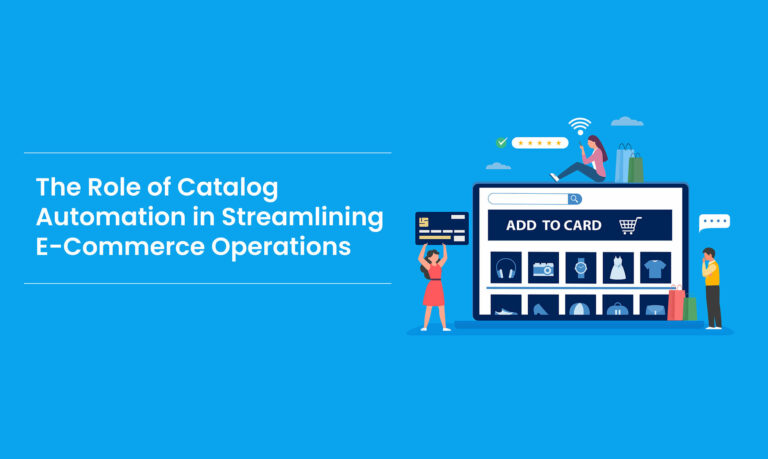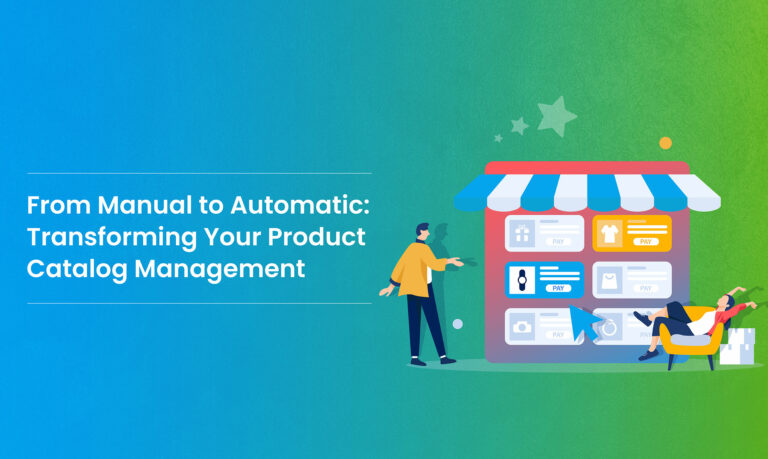Artificial intelligence (AI) can forecast demand trends and adjust stock levels to avoid overstock or stockouts. By doing this, companies can keep their supply chains running smoothly and cut expenses related to having too much inventory or passing on sales chances.
Businesses can make wise decisions with the help of text analysis using AI. Artificial Intelligence (AI) powered data collection may offer significant insights into customer behavior, industry trends, and rival strategy by examining large datasets. By using this data, companies may stay one step ahead of other businesses and successfully adjust to shifting market conditions. With the use of artificial intelligence (AI), e-commerce companies may adopt flexible pricing approaches that take into account client behavior, rival costing, and the present state of the market. Businesses may optimize income and stay at par with competitors by using price agility.
Introduction
When we think about artificial intelligence, our minds often gather futuristic scenarios from science fiction. However, AI is already a part of our daily lives, influencing how we interact with technology in the form of practical algorithms and learning technology, laying the basis for automation, text analysis using AI, and more.
AI-driven tools like Rubick.ai are invaluable for modern online retailers, facilitating exceptional customer experiences and helping smart business decision-making processes through data analysis. This article will discuss how AI and e-commerce collaborate in the online space to achieve efficiency.
Impact of AI on E-Commerce
We live in a time where social media, technology, and the internet are all common due to the revolution of technology. Accordingly, many successful businesses enter the online market to enhance sales opportunities. Retailers employ AI tools like text analysis to optimize product offerings and boost their conversion rate. Beyond marketing, online retailers also use AI for chatbot services, customer comment analysis, and personalized services to meet customer demands more effectively. A report by Gartner indicates a 270% increase in businesses adopting AI in the last four years.
The use of AI in online businesses offers faster and more accurate task processing compared to humans. Whether it’s handling data, identifying images, or detecting any discrepancy in the system, AI surpasses human capabilities without experiencing exhaustion, the need for rest, or distractions.
Estimates by Business Insider suggest that nearly 85% of customer interaction will be managed without human intervention. While this may seem ambitious, the efficiency of responding to emails, phone calls, and chats through automated systems aligns with this projection.
However, challenges persist. A recent survey indicates that up to 85% of AI initiatives fall short of expectations. Improvements are needed in AI algorithms to enhance the success rates of these initiatives.
How E-commerce Uses AI?
Here are a few examples of how AI may be used to improve the customer experience, optimize procedures, and increase efficiency:
1. Text Analysis Using AI
Text analysis tools improve online product listing using the capabilities of AI. It can write compelling descriptions and create engaging titles containing the right keywords, ensuring they attract potential customers. This also helps boost product visibility and drive organic traffic by making your category page content align with search engine algorithms.
Rubick.ai‘s text analysis tool employs data-driven insights to implement SEO strategies and write promotional blogs. With the integration of AI automation, increase your marketing initiatives and get unexpected results.
2. Pricing Strategies
AI’s role in pricing strategy is crucial. Traditional methods involve manual competitive analysis and calculations based on large data sets. AI, presented by companies like Rubick.ai, offers automated processes that combine internal and competitive pricing with real-time inventory data. This enables businesses to implement a flexible pricing strategy aligned with their profit targets.
AI also facilitates personalized pricing, allowing adjustment based on user behavior, global supply and demand, or competitors’ stock level.
3. Fraud Prevention
Digital fraud poses a significant threat to e-commerce, costing retailers billions worldwide. AI steps in with efficient solutions by analyzing millions of global transactions. AI-based machine learning can identify irregularities and suspicious behavior that would be impossible for humans to detect in real time.
By developing advanced applications through AI models, businesses can mitigate the potential harm of fraudulent transactions, safeguard revenue, and improve credit acceptance rates.
4. Remarketing
One major application of AI in e-commerce is the implementation of remarketing strategies. Remarketing service as a reminder to the target audience about the brand. This strategy focuses on re-engaging either with previous customers or those who have visited the website without completing the purchase.
AI enables online businesses to identify customer behavioral patterns based on sales data and product interactions. This information is used to attract customers back to the e-commerce website. Push notification emerge as a valuable tool in this retargeting strategy. Brief and clear, these notifications minimize the risk of customer annoyance. Personalized push notifications and promoting one-on-one communication further enhance the effectiveness of the strategy.
5. Synthetic Media in E-commerce
AI-driven personalization is a key aspect of e-commerce design and development. Synthetic media, a newer area of personalization, involves content automatically created by AI, including hyper-realistic images and videos known as “deep fakes.” Applications of synthetic media in e-commerce include image enhancement, content localization, human-like voices, and virtual environments.
6. Intelligent Product Recommendations
AI empowers e-commerce websites to offer unique product recommendations, allowing users to search using conversational language or images. Employing big data, AI attempts to influence customer choices by understanding previous purchases, searched products, and online browsing habits. Recommendations can be behavioral, shopper-focused, or based on content similarity.
7. Personalized Customer Experience
Personalization is at the core of AI in e-commerce content marketing. Analyzing customer data from various sources provides valuable insights for digital retailers. This enables them to make suitable product recommendations, ensuring a consistent digital experience across devices.
8. Natural Language Processing
Natural language processing helps the system understand user intent in case of misspelled or vague searches. Users can use more natural language or dialogue-style phrases with this functionality, and AI can fix misspellings, provide synonyms, or automatically incorporate missing terms.
9. Chatbots and Virtual Assistants
Chatbots have become integral to e-commerce, providing assistance and information during the shopping experience. Predictions suggest substantial global spending on virtual assistants in the coming years. Chatbots enhance scalability, data collection, and user experience by offering 24/7 assistance.
10. Inventory Management
Efficient inventory management is crucial for meeting market demand without creating excess stock. AI, along with automated robots in warehouse management, ensures 24/7 stock retrieval and dispatching for online orders. Unlike humans, AI robots can handle these tasks continuously.
AI-enabled inventory management goes beyond traditional stock-level maintenance, considering factors like sales trends, projecting changes in product demands, and potential supply-related issues.
How to Integrate AI into Your E-commerce Strategy?
A strategic approach is essential for businesses ready to adopt AI in commerce:
- Create a vision and strategy: Develop a plan based on your data to differentiate from competitors.
- Prioritize AI initiatives: Allocate sufficient budget and resources to ensure AI receives the necessary focus and support.
- Expertise and skillsets: Hire data scientists to build programs that capture quality data, particularly from unstructured files.
- Choose the Suitable AI Tools: Explore various AI tools available in the market. Test their compatibility with your existing systems and their effectiveness in meeting your objectives. Businesses can implement text analysis using AI to enhance their overall marketing strategy.
Benefits of AI in E-commerce
AI presents numerous advantages for E-commerce businesses.
- Increased Sales Efficiency:
AI facilitates a smooth sales process by collecting and analyzing customer data for personalized sales experience. Improved data collection allows for target engagement with suitable people at the right time. Notably, French delivery service Chronopost experienced an 85% boost in sales revenue during the 2022 holiday season through AI-driven campaigns.
- Efficient Time and Resource Allocation:
AI assists in automatic tasks such as emailing, order fulfillment, customer service, and payment processing. Automation reduces labor costs and enhances operational efficiency, allowing businesses to allocate more time to innovation.
- Improved Personalized Customer Service:
AI analyzes customer feedback and extensive data from various sources to evaluate customer interactions. E-commerce platforms use this data to offer a seamless customer experience. Understanding customer preferences through data collection enables businesses to present personalized offers, as seen with brands implementing virtual sales associates, resulting in increased conversion rates and average order values.
Conclusion
AI is set to transform the e-commerce business in the next few years. Implementing AI in e-commerce is important for making data-driven decisions for growing organizations. Real-world examples of artificial intelligence are already evident, contributing significantly to enhanced customer experiences and innovative e-commerce solutions.
Rubick.ai‘s text analysis tool is a modern solution designed to transform online product listings using AI. Upgrade your e-commerce strategies with text analysis using AI that optimizes content, boosts SEO, and enhances your overall online presence.


